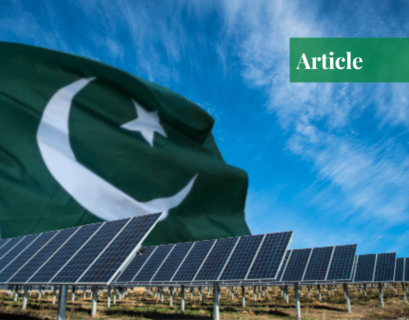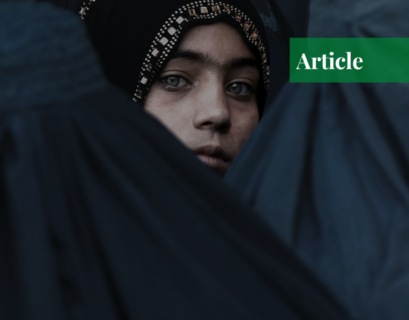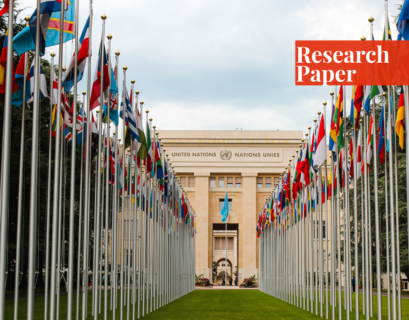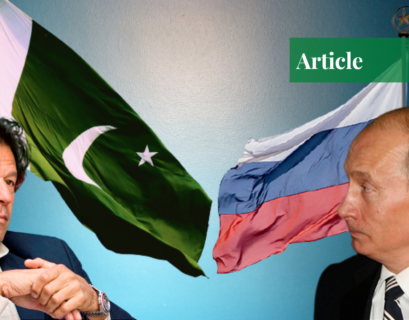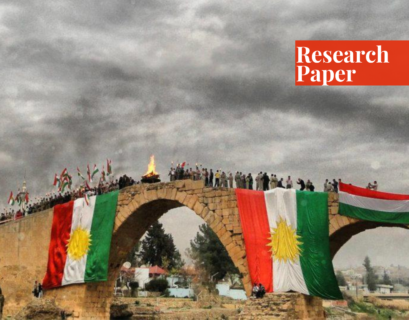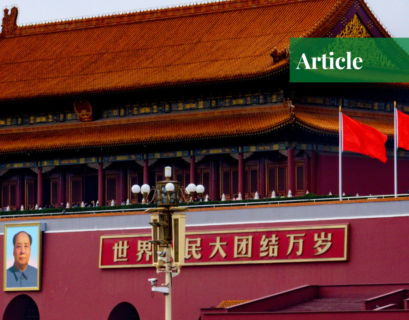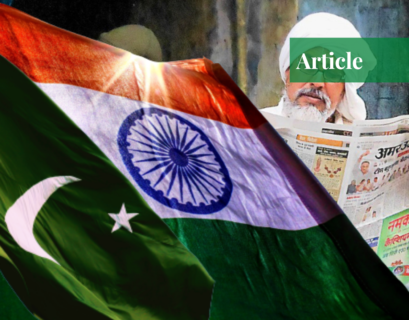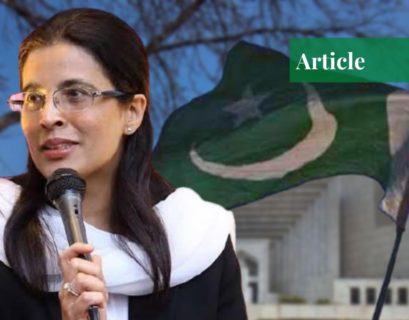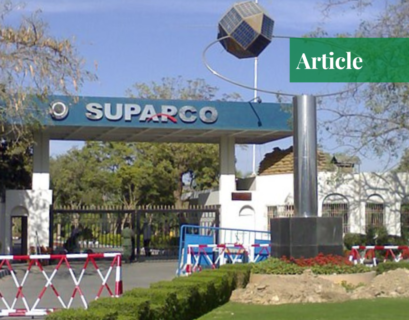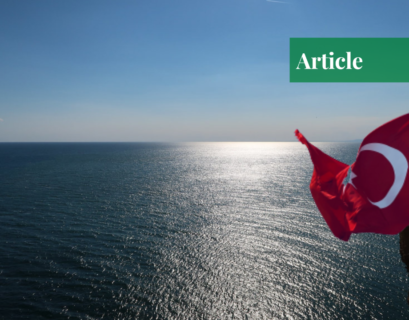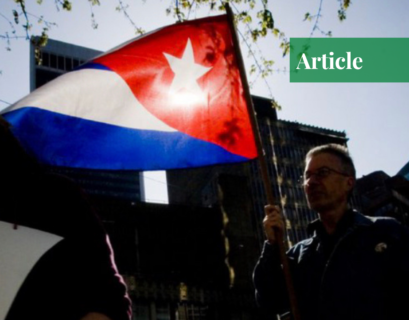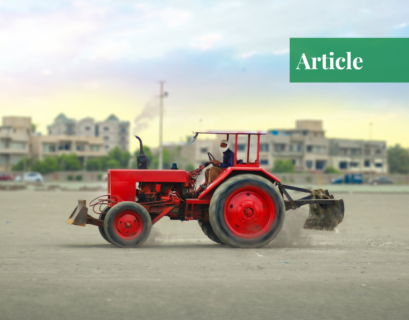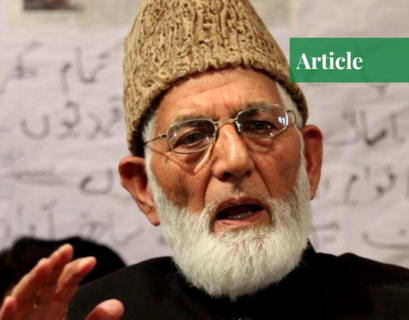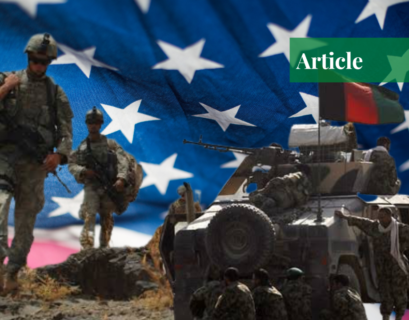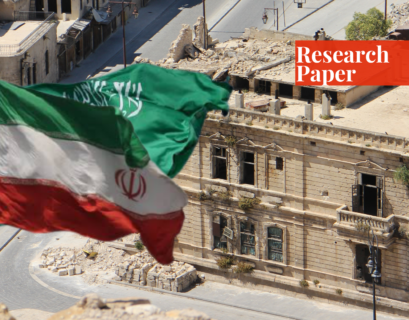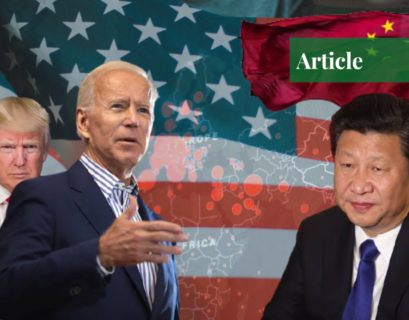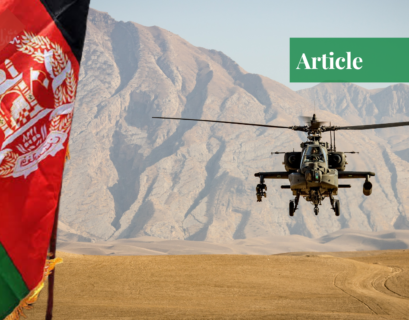What Are the Challenges of Switching to Renewable Energy Sources?
The author, Dr. Taut Bataut, focuses on the challenges associated with switching to renewable energy from hydrocarbons. While the advantages of renewables are substantial, the implementation of such schemes is fraught with complications. Pakistan remains predominantly reliant on fossil fuels as its primary source of energy. Hence, a more pragmatic and long-term policy that incentivizes renewables and gradually enhances their contribution to the energy mix is crucial for success.
The Interim Taliban Government in Afghanistan: Will It Be Internationally Recognized?
The Taliban’s announcement of an interim government in Afghanistan was not a surprise to the international community. With no female—and hardly any ethnic—representation, the interim government will most certainly not get instant recognition.
The author, Mr. Muhammad Abubaker, also underscores the humanitarian crisis brewing in Afghanistan.
An Evolution of the UN Peacekeeping Missions
When the United Nations first introduced its peacekeeping missions the operations simply observed ceasefires and monitored conflicts. Yet, over the years, peacekeeping operations have evolved to include humanitarian and technical assistance as well. The first two generations of peacekeeping required non-use of force, impartiality, and the consent of the parties involved, hence, limiting the authority of the peacekeepers. The author notes that due to the failure of these generations, third-generation peacekeeping has been tasked with reforming the peacekeeping operations.
Pakistan and Russia: Improving Bilateral Ties & Regional Stability
The author, Muhammad Hamza Tanvir, examines the possible contours of the future relationship between Russia and Pakistan – alongside the possible impact on India’s strategic designs.
The article also highlights the impact of the relationship between the two countries w.r.t. the predicament in Afghanistan, as well the role that both can play in enhancing bilateral relations.
The Kurdish Region: From Great Dynasties to Stateless Nation
The dissolution of empires and the formation of new nation-states after the two world wars divided the Kurdish region and population into four states—Iran, Iraq, Syria, and Turkey. For decades, the Kurdish people have been subjected to persecution, discrimination, assimilation, and repression in these states. Unlike the Kurds of Iraq, the Kurds of Syria, Iran, and Turkey do not have their own autonomous regions. The author argues that this can be contributed to the fact that the Kurdish people have long forgotten their true objective and have assumed the role of pawns for the very states that once abandoned them.
The Communist Revolution in China
The author, Zuha Tiwana, narrates the Communist revolution that entirely changed the political and social trajectory of China.
Mao Zedong, likened to Emperor Qin, executed ruthless actions – all for the sake of preserving China’s legacy.
The Indian Media about Pakistan: A Pandemic of Fake News
The Indian media’s acquaintance with fake news is not something new. The EU Disinfo Lab reports that in the last 15 years, India has resurrected dead people, NGOs, and 750 media outlets and impersonated EU institutions just to spread false information and news about its rivals and Pakistan. The author notes that the Indian media’s warmongering style of reporting fake news about Pakistan, after the Pulwama attack and the recent Taliban takeover in Afghanistan, has not gone unnoticed by the international community. The author asserts that contrary to India’s intentions, this fake news propaganda has now revealed the state’s true identity and disturbed the peace and stability of South Asia.
Justice Ayesha A. Malik: Shattering the Glass Ceiling
The author, Sobia Aftab, aims to create awareness amongst the public and clarify the understanding of the elevation procedure to the Apex Court. The article highlights the career and achievements of her ladyship, Justice Ayesha Malik, while focusing on the debate of the principle of seniority versus competency for elevation.
Pakistan Space & Upper Atmosphere Research Commission (SUPARCO): What Went Wrong?
Pakistan’s space agency, the Space & Upper Atmosphere Research Commission (SUPARCO), was founded on 16th September, 1961.
Although the organization had a promising beginning, its potential soon waned because of the wars, the military coups, East Pakistan’s independence, and political and economic instability.
Turkey’s Foreign Policy Towards the Caucasus & the Black Sea
The Ottoman Empire lost its control over the Black Sea after the conclusion of the 6th Russo-Turkish War.
However, the Black Sea continues to hold great economic and geostrategic importance for Turkey, as the Turkish Straits serve as the only pathway connecting other nations to the Black Sea.
The author, Muhammad Bilal Farooq, also expores the dynamic interaction between Turkey and the nations in the Caucasus.
The Protests in Cuba (2021): Causes and Implications
Since the Cuban revolution in 1959, the relations between the US and Cuba have undergone various degrees of tension. The US sanctions on Cuba, food shortages, a failing economy, and the rising cases of COVID-19 have created a sense of dissatisfaction and urgency. Together, these factors have compelled the Cubans to initiate nationwide protests demanding reforms. The author argues that with the US turning a blind eye to the protests, and the United Nations’ failure to help the Cubans, the people of the state are left with no one to rely on.
The Agricultural Sector in Pakistan: A Case of Mismanagement
Pakistan’s agricultural sector possesses the ability to drive the state’s economy. Despite that, the sector only contributes 24% to the GDP of Pakistan and its true potential remains untapped. The author notes that the policies of the previous governments and the mismanagement of the resources have led to sluggish agricultural growth, post-harvest losses, and caused Pakistan to lag in the seed and livestock sectors. The author argues that while Pakistan has the perfect environment for growing high-value crops, the current challenges to the agricultural sector have held back the state.
Syed Ali Shah Geelani – The Unyielding Hero of Kashmir
Syed Ali Shah Geelani is the man known for his resolute courage and resistance to India’s illegal occupation of Kashmir. Throughout his life, he was a symbol of hope for the people of Jammu and Kashmir.
His death on 1st September, 2021, has left many saddened, but his lifelong struggle for the inclusion of Jammu and Kashmir into Pakistan will continue to live.
From the American Invasion of Afghanistan to Taliban 2.0
The article portrays an educated yet comprehensive outlook of the Afghanistan conundrum. The author gives an insight into the US invasion of Afghanistan in 2001, the formation – and inefficiency – of the Afghan Army, the ultimate reclamation of Kabul by the Taliban, and their 2.0 version.
The Civil War in Syria: The Role of Iran and Saudi Arabia
In the quest to become the regional hegemon, Iran and Saudi Arabia have backed governments, militias, and organizations based on sectarian lines in the Middle East. While Tehran is financially and militarily supporting the Assad regime and Hezbollah in Syria, Riyadh has resorted to backing the Syrian rebels and jihadist groups, like the Army of Islam, Jaish al-Fatah, and Ahrar al-Sham, against the regime. The author argues that the proxy war in Syria, while only a battle for supremacy for Iran and Saudi Arabia, has devastated the Syrians and turned the state into a haven for extremist groups.
The Relationship Between America and China Under the Biden Administration
After Trump, the US looks to Biden for directing and navigating its foreign policy towards China. The revival of Quad and the US’s insistence on the investigation of COVID-19’s origins, among others, display that the Biden administration is more direct and forceful when it comes to countering China.
Civil War in Afghanistan: A Consequence of the American Exit?
The US withdrawal from Afghanistan left the state in a vulnerable and unstable condition. The author notes that with the Afghan Taliban now in power, the possibility of a civil war erupting in the state is relatively high. This war will force the neighboring states and the regional powers to, once again, get involved in Afghanistan. The author argues that this situation could have been avoided had the US fulfilled its responsibility under jus post bellum and upheld its moral, ethical, democratic, and international humanitarian principles. Instead, the US withdrawal has only reminded the world of the US exit in the Vietnam War.
